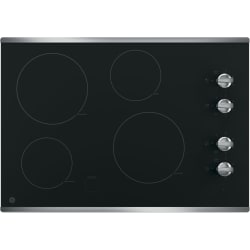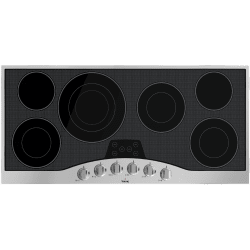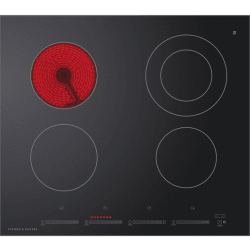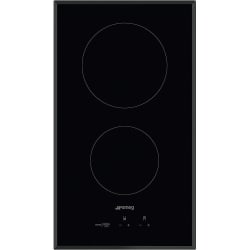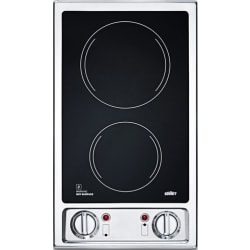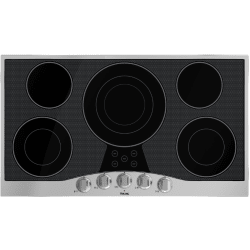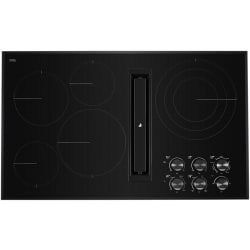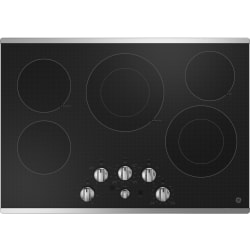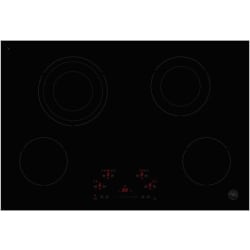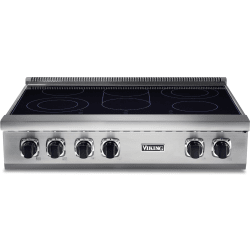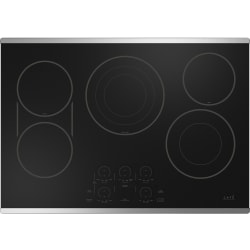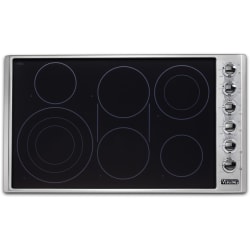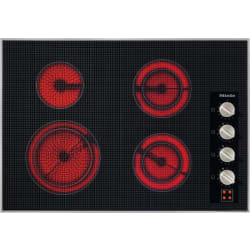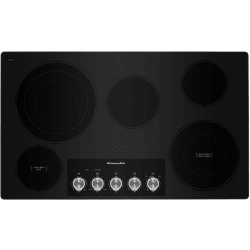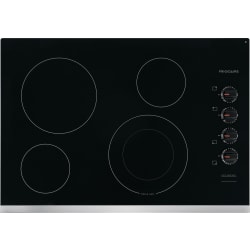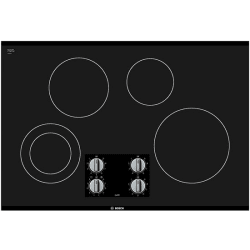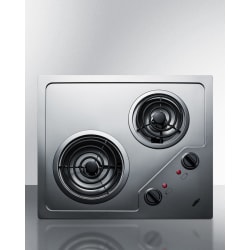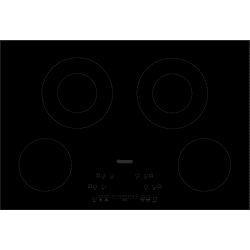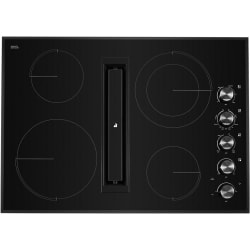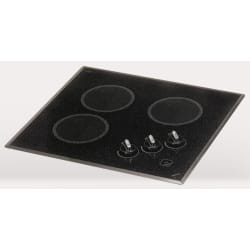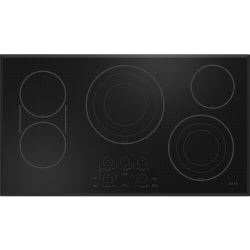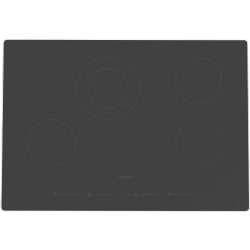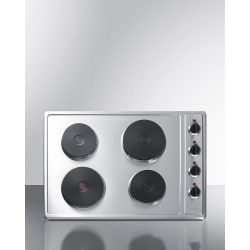Explore AjMadison’s wide range of electric cooktops and rangetops, each one designed to elevate your culinary experience and fit seamlessly into your kitchen. Our selection includes models with sizes to fit any countertop cutout, from 12-in. modules with one or two burners to 45-in. cooktops from Viking with professional-grade performance features. We even carry one of the largest, most affordable assortment of brands from budget to luxury, including Bosch, GE, KitchenAid, and Wolf cooktops!
Electric cooktops have evolved beyond traditional coil elements to include smoothtop designs that catch every spill on the surface! Some of the most advanced models available for residential kitchens are induction cooktops – electric cooktops that utilize electromagnetism to directly heat cookware and prevent burnt-on spills. The concentrated power of induction provides heating prowess comparable to gas while remaining more energy-efficient than their traditional electric counterparts, earning many of these units ENERGY STAR certification! In fact, electric rangetops with induction are increasing in popularity and availability, allowing consumers to integrate pro-style aesthetics without buying a whole induction range.
Modularity is becoming increasingly popular when creating designer kitchens, with brands like Miele, Gaggenau, and JennAir allowing you to mix and match fuel types for the ultimate kitchen combination! Your custom cooktop can include teppanyaki, electric grill, and even deep fryer modules to tackle any cuisine. Downdraft range hood modules can be interspersed with your cooking appliances for heat control, or you can get your hands on a full-size JennAir downdraft electric cooktop. JennAir invented downdraft ventilation, so it’s only logical they were the first to craft an electric cooktop with downdraft capabilities.
Our top-rated electric cooktops are built to accommodate every kind of lifestyle and cooking method consumers indulge in. ADA-compliant designs improve accessibility, while STAR-K certification lets you use these appliances without interacting with electrical interfaces. Smart cooktops with built-in Wi-Fi can be controlled from your smartphone, allowing you to adjust their settings from anywhere in your home. Several others connect to smart home managers like Amazon Alexa or Google Home, allowing you to control them with your voice. Select models even come with Bluetooth connectivity, allowing them to synchronize with compatible over the range microwaves or range hoods and activate their fans automatically.
Browse AjMadison’s listings to find the best electric cooktops for your home and shop tons of deals on cooking appliances now!
Which is better, an induction or an electric cooktop?
While an induction cooktop is more expensive than an electric cooktop upon purchase, it is more energy efficient and can save you money in the long run. Most induction units deactivate when they do not sense cookware and produce no ambient heat from their surfaces, saving energy over their lifespans while keeping kitchens cooler. This will also save you money on ventilation since you won’t have to run the blower as often. Since induction heats cookware directly, you can also heat up pots and pans comparable to the speed of gas cooktops.
Do chefs prefer gas or induction cooktops?
Professional chefs tend to favor the traditional cooking style of using gas in commercial kitchens. The instant, precise heat adjustment that gas cooktops provide allows you to seamlessly transition between boiling and simmering for multi-course meal preparation. However, many pros are starting to favor electric cooktops for kitchens, particularly induction, because their power and speed are becoming comparable to gas with modern innovations.
What are the disadvantages of an induction cooktop?
Induction cooktops require compatible cookware with electromagnetic properties. Non-magnetic cookware like aluminum, copper, or glass will not work. Induction units also have smoothtop surfaces, so you must be careful not to crack them when handling heavy pots and other cookware. Finally, electromagnetism at high power levels can cause a buzzing noise and potentially interfere with certain medical devices like pacemakers (although this is generally rare).





 800-570-3355
800-570-3355 